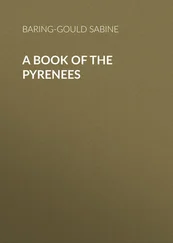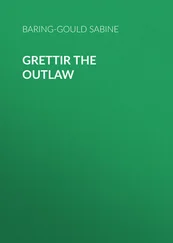Sabine Baring-Gould - Legends of the Patriarchs and Prophets
Здесь есть возможность читать онлайн «Sabine Baring-Gould - Legends of the Patriarchs and Prophets» — ознакомительный отрывок электронной книги совершенно бесплатно, а после прочтения отрывка купить полную версию. В некоторых случаях можно слушать аудио, скачать через торрент в формате fb2 и присутствует краткое содержание. Жанр: foreign_antique, foreign_prose, на английском языке. Описание произведения, (предисловие) а так же отзывы посетителей доступны на портале библиотеки ЛибКат.
- Название:Legends of the Patriarchs and Prophets
- Автор:
- Жанр:
- Год:неизвестен
- ISBN:нет данных
- Рейтинг книги:3 / 5. Голосов: 1
-
Избранное:Добавить в избранное
- Отзывы:
-
Ваша оценка:
- 60
- 1
- 2
- 3
- 4
- 5
Legends of the Patriarchs and Prophets: краткое содержание, описание и аннотация
Предлагаем к чтению аннотацию, описание, краткое содержание или предисловие (зависит от того, что написал сам автор книги «Legends of the Patriarchs and Prophets»). Если вы не нашли необходимую информацию о книге — напишите в комментариях, мы постараемся отыскать её.
Legends of the Patriarchs and Prophets — читать онлайн ознакомительный отрывок
Ниже представлен текст книги, разбитый по страницам. Система сохранения места последней прочитанной страницы, позволяет с удобством читать онлайн бесплатно книгу «Legends of the Patriarchs and Prophets», без необходимости каждый раз заново искать на чём Вы остановились. Поставьте закладку, и сможете в любой момент перейти на страницу, на которой закончили чтение.
Интервал:
Закладка:
God then made the animals subject to death, but the men He made were immortal. But the new created men became disobedient, as had the first creatures; and the frog complained to Him of His injustice in having made the harmless animals subject to death, but guilty man deathless. “Thou art right,” answered Til, and He cast on the men He had made, old age, sickness, and death. 73 73 Ausland für Nov. 4, 1847.
The Fantis relate that they are not in the same condition as that in which they were made, for their first parents had been placed in a lofty and more suitable country, but God drave them into an inferior habitation, that they might learn humility. On the Gold Coast the reason of the Fall is said to have been that the first men were offered the choice of gold or of wisdom, and they chose the former. 74 74 W. Smith, Nouveau Voyage de Guinée. Paris, 1751, ii. p. 176.
In Ashantee the story is thus told. In the beginning, God created three white and three black men and women, and gave them the choice between good and evil. A great calabash was placed on the earth, as also a sealed paper, and God gave the black men the first choice. They took the calabash, thinking it contained every thing, and in it were only a lump of gold, a bar of iron, and some other metals. The white men took the sealed paper, in which they learned every thing. So God left the black men in the bush and took the white men to the sea, and He taught them how to build ships and go into another land. This fall from God caused the black men to worship the subsidiary Fetishes instead of Him. 75 75 Bowdler, Mission from Cape Coast to Ashantee. London, 1819, p. 344.
In Greenland “the first man is said to have been Kallak. He came out of the earth, but his wife issued from his thumb, and from them all generations of men have sprung. To him many attribute the origin of all things. The woman brought death into the world, in that she said, Let us die to make room for our successors.” 76 76 Cranz, Historie von Grönland. Leipzig, 1770, i. p. 262.
The tradition of the Dog-rib Indians near the Polar Sea, as related by Sir J. Franklin in his account of his expedition of 1825-27, is that the first man was called Tschäpiwih. He found the earth filled with abundance of all good things. He begat children and he gave to them two sorts of fruit, one white and the other black, and he bade them eat the white, but eschew the black. And having given them this command, he left them and went a long journey to fetch the sun to enlighten the world. During his absence they ate only of the white fruit, and then the father made a second journey to fetch the moon, leaving them well provided with fruit. But after a while they forgot his command, and consumed the black fruit. On his return he was angry, and cursed the ground that it should thenceforth produce only the black fruit, and that with it should come in sickness and death.
Dr. Hunter, in his “Memoirs of Captivity amongst the Indians,” says that the Delawares believe that in the beginning the Red men had short tails, but they blasphemed the Great Spirit, and in punishment for their sin their tails were cut off and transformed into women, to be their perpetual worry. The same story is told by Mr. Atherne Jones, as heard by him among the Kikapoos.
The ancient Mexicans had a myth of Xolotl, making out of a man’s bone the primeval mother in the heavenly Paradise; and he called the woman he had made Cihuacouhatl, which means “The woman with the serpent,” or Quilatzli, which means “The woman of our flesh.” She was the mother of twins, and is represented in a Mexican hieroglyph as speaking with the serpent, whilst behind her stand the twins, whose different characters are represented by different colors, one of whom is represented slaying the other. 77 77 Humboldt, Pittoreske Ansichten d. Cordilleren; Plate xiii. and explanation, ii. pp. 41, 42.
Xolotl, who made her out of a bone, was cast out of heaven and became the first man. That the Mexicans had other traditions, now lost, touching this matter is probable, for they had a form of baptism for children in which they prayed that those baptized might be washed from “the original sin committed before the founding of the world.” And this had to do, in all probability, with a legend akin to that of the Iroquois, who told of the primeval mother falling, and then of the earth being built up to receive her, when precipitated out of heaven.
The Caribs of South America relate that Luoguo, the first man and god, created the earth and the sea, and made the earth as fair as the beautiful garden in the heaven where dwell the gods. Luoguo dwelt among the men he had made for some while. He drew the men out of his navel and out of his thigh which he cut open. One of the first men was Racumon, who was transformed into a great serpent with a human head, and he lived twined round a great Cabatas tree and ate of its fruit, and gave to those who passed by. Then the Caribs lived to a great age, and never waxed old or died. Afterwards they found a garden planted with manioc, and on that they fed. But they became wicked, and a flood came and swept them away. 78 78 De la Borde, Reise zu den Caraiben. Nürnb. 1782, i. pp. 380-5.
In the South Sea Islands we find other traditions of the Fall. In Alea, one of the Caroline Islands, the tale runs thus: —
“The sister of Eliulap the first man, who was also a god, felt herself in labor, so she descended to earth and there brought forth three children. To her astonishment she found the earth barren; therefore by her mighty word, she clothed it with herbage and peopled it with beasts and birds. And the world became very beautiful, and her sons were happy and did not feel sickness or death, but at the close of every month fell into a slumber from which they awoke renewed in strength and beauty. But Erigeres, the bad spirit, envied this happiness, so he came to the world and introduced into it pain, age, and death.” 79 79 Allg. Hist. der Reisen, xviii. p. 395.
With the Jewish additions to the story given in Genesis, we shall conclude.
The godless Sammael had made an alliance with all the chiefs of his hosts against the Lord, because that the holy and ever blessed Lord had said to Adam and Eve, “ Have dominion over the fish of the sea ,” etc.; and he said, “How can I make man to sin and drive him out?” Then he went down to earth with all his host, and he sought for a companion like to himself; he chose the serpent, which was in size like a camel, and he seated himself on its back and rode up to the woman, and said to her, “ Hath God said, Ye shall not eat of every tree of the garden? ” And he thought, “I will ask more presently.” Then she answered, “He has only forbidden me the fruit of the Tree of Knowlege which is in the midst of the garden. And He said, ‘In the day thou touchest it thou shalt die.’” She added two words; God did not say any thing to her about touching it, and she spoke of the fruit, whereas God said the Tree.
Then the godless one, Sammael, went up to the tree and touched it. But the tree cried out, “ Let not the foot of pride come against me, and let not the hand of the ungodly cast me down! Touch me not, thou godless one!”
Then Sammael called to the woman, and said, “See, I have touched the tree and am not dead. Do you also touch it and try.” But when Eve drew near to the tree she saw the Angel of Death waiting sword in hand, and she said in her heart, “Perhaps I am to die, and then God will create another wife for Adam; that shall not be, he must die too.” So she gave him of the fruit. And when he took it and bit, his teeth were blunted, and thus it is that the back teeth of men are no longer sharp. 80 80 Eisenmenger, i. pp. 827-9.
Интервал:
Закладка:
Похожие книги на «Legends of the Patriarchs and Prophets»
Представляем Вашему вниманию похожие книги на «Legends of the Patriarchs and Prophets» списком для выбора. Мы отобрали схожую по названию и смыслу литературу в надежде предоставить читателям больше вариантов отыскать новые, интересные, ещё непрочитанные произведения.
Обсуждение, отзывы о книге «Legends of the Patriarchs and Prophets» и просто собственные мнения читателей. Оставьте ваши комментарии, напишите, что Вы думаете о произведении, его смысле или главных героях. Укажите что конкретно понравилось, а что нет, и почему Вы так считаете.












